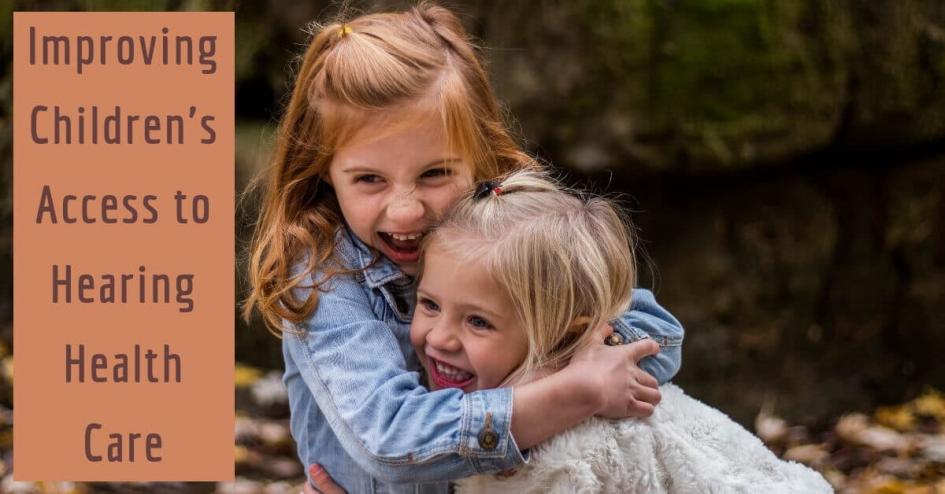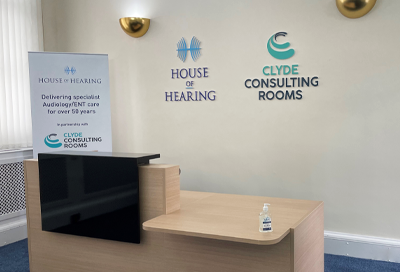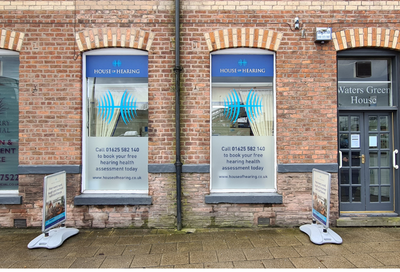
Improving Children's Access to Hearing Health Care
Each year in the UK, around 840 infants are born with a significant hearing impairment. Thankfully, this represents only a small selection of all births in a year. But for those that are affected, the consequences could be debilitating if left untreated. And this is a problem which is not confined to infants, 34 million children have hearing loss worldwide. It is an often-invisible injury which has huge effects on their earning potential, mental, linguistic and social development. Research shows that people who have hearing loss earn less than their peers. The problem compounds when hearing loss is found early on in the person’s life. It affects the development of speech, educational achievements and cognitive skills. It also makes children more likely to be socially withdrawn as they struggle to keep up with children who have normal hearing. The problem is also a ticking time bomb for governments worldwide. If more resources are not diverted to improving children’s access to health care, governments will be forced to tackle the growing health problems that so often afflict those with hearing loss, including an increase in the likelihood of accidents, depression and cognitive decline.
Consequences of untreated childhood hearing loss
The more immediate issue for children growing up with hearing loss is the adverse effect it has on their language skills. Languages are learned through being exposed to sounds and practicing those sounds with others, and noting the responses they get. Without the ability to hear the sounds they are making or the responses they get, children don’t have the information to develop the sounds needed for language. Hearing loss can also affect their ability to read and write, which will lead to them developing more slowly in their schools. In fact, children with mild to moderate hearing loss could fall one to four grade levels behind if they are not given any help. This has a knock-on effect as they enter adulthood. Their earning potential is compromised and they will find it more difficult to get and hold down a job. There are also potential health problems. Long term, those who grow up with hearing loss are twice as likely to develop dementia as people without hearing loss. They are also more likely to be depressed, which brings with it a whole host of potential health and mental problems. Put simply, hearing loss kicks off a domino-chain of diverse challenges that quickly spiral if hearing loss is left untreated.
Early treatment is key, but more access is needed
Last month saw International Children’s Rights Day, a time to campaign for the rights of young people around the world. For those who are still growing up, removing barriers to success is something all governments can aim for. Improving access to children’s healthcare is therefore a worthy cause for all governments around the world. One way we can do this is to help detect and intervene early in children’s lives to mitigate potential consequences. There are screening programmes in place for new-borns in the UK, and it has already gone a long way towards identifying and tackling hearing loss in young children. There are also services like cochlear implants, speech therapy and sign language classes which help ease the experience of children as they make their way through school and into adulthood. The programmes are having an effect. Those children with severe hearing loss who have access to cochlear implants do better educationally than those without implants. Therefore, it’s time the world paid more attention to hearing loss in our societies so that our children have everything they need to reach their full potential. There is also the issue of children born with normal hearing who are unaware of the danger of Noise-induced Hearing Loss (NIHL). A non-profit based in the States is aiming to raise awareness of this among young people, empowering them to protect themselves by understanding the causes and solutions. This is done with real-life examples and activities to help kids understand the risks involved. If you are wondering about your own child’s hearing, the best thing to do is to get them tested by an audiologist. Prevention is always better than cure, and even if the results come back negative, the time has not been wasted because now you know for sure. If the audiologist does find something, they will be the best person to talk to about how to treat your child’s hearing loss.
Contact House of Hearing UK for a thorough hearing exam
Whether in yourself, your spouse, your parent or child, hearing loss should never be ignored. Schedule an appointment with House of Hearing UK to learn more about your hearing health.
Our Clinics
All House of Hearing clinics are in town centre locations and accessible to public transport and parking. Home visits also available if mobility is an issue.


.png)

.png)
.png)


.png)
